Featured
Dariye is a fugitive in the United Kingdom, Witness tells Court
Published
10 years agoon
By
Olu Emmanuel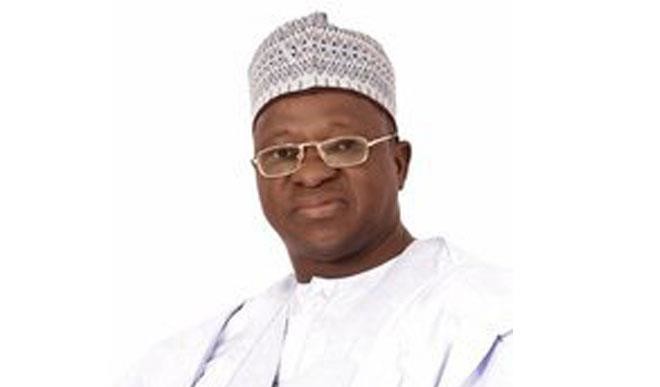
Peter Clark, a retired detective constable with the UK Metropolitan Police, on Monday, told a Federal Capital Territory, (FCT), High Court, sitting in Gudu, Abuja, that a former governor of Plateau State, Joshua Dariye, is still wanted in the United Kingdom for money laundering charges.
Dariye, who is being prosecuted by the Economic and Financial Crimes Commission, (EFCC), on a 23-count charge bordering on money laundering and diversion of funds before Justice Adebukola Banjoko, is alleged to have siphoned the state’s ecological fund to the tune of N1.162 billion.
Clark gave a detail account of how £11,560 cash found on Christopher Mekwunye, an aide of Dariye, who is allegedly involved in a credit card fraud, was traced to the former governor, making him a suspect of money laundering.
Led in evidence by prosecuting witness, Rotimi Jacobs (SAN), Clark told the court that Mekwunye had under interrogation confessed that the money was given to him to deposit on behalf of Dariye into his Barclays Bank account.
He said: “In 2004, officers of the Metropolitan Police involved in investigating a large credit card fraud had, during search of a number of houses, found the cash on Christopher Mekwunye at 127 Chilton House, Portland Street, SW London.
“I asked him about Dariye and he told me that he was a politician and governor of Plateau State in Nigeria. I then left him with the other officers working on the credit card fraud and made several inquiries with the Barclays Bank, where they informed me that Dariye was a customer with the bank with an account that was operated in a suspicious way.”
Clark, who retired on March 9, 2015 after 28 years in service, thereafter, obtained a court order to enable him obtain more information about the said account.
He added: “After I got the court order, I was able to gain access to the accounts operated by Dariye. I received the bank statement, the personal customer profile, which is the information provided to the bank, while the account was operated by Dariye.
“He first operated the account in 1995 and he told the bank that he was employed as a manager for Benue Cement Company, and that he was on a £500,000 yearly salary.
“There were nine bank accounts operated by him. Some of them were dormant, but some were high interest- bearing accounts, which showed a £816,000 balance. Closer examination of the account showed that money was being transferred into the account from a company called Ebenezer Retnan Ventures (ERV) with about £440,000, and the bank sending in the money was All States Trust Bank in Nigeria.
“There were a number of other electronic transfers directly made by Joshua Dariye himself; and from memory, I remember Lion bank. Mr. Dariye also operated a credit card and all the accounts were registered at one address: Flat 28, Regent Plaza Apartments, 8 Greville Road.”
He further told the court that investigations showed that one Joyce Oyebanjo was also paying into the account, issuing cheques from her bank account at National Westminster Bank.
According to him, “I discovered from the account that in October 2003, she received more than £1 million through electronic transfers from Nigerian companies. She was also responsible for paying money into Dean Close School in the UK for three of Dariye’s children.”
Clark further told the court that he, thereafter, requested for the assistance of the EFCC to help in unravelling evidence linked to ERV.
ALSO SEE: Money Laundering: EFCC produces more witnesses against Dariye
While giving further testimony, he said: “In July 2004, Joyce Oyebanjo was arrested; and in a prepared statement, she stated that all the moneys that were sent to her from Nigeria came from Mr. Dariye and were being sent to her for the upkeep of his children and the maintenance of his property in the UK.
“In September, 2004, I received information that Dariye was at Marriott Hotel, George Street and on the 2nd of September, around8.20am, I went to Rm 1208, which was occupied by Dariye.
“I introduced myself and told him I’d been investigating his bank accounts and had suspicion that the money he had received in the account was stolen. As a result, I arrested and cautioned him on suspicion of money laundering. He made no reply to the caution.”
Clark revealed further that on searching his room, £43,000 cash was found and seized. Various denominations, including Euros, sterling, dollars and Scottish bank notes were found in the room and confiscated. Also a Mont Blanc pen worth £7,000 and Louis Vuitton branded shoes worth £700 a pair, were among properties found in his room.
Oyebanjo, according to Clark, already served a three-and-a-half jail term in the UK for involvement in the money laundering offence.
The photograph of the seized bank notes were presented in court and accepted as exhibits against Dariye.
Enquiry at the hotel counter, according to Clark, revealed that contrary to Dariye’s claim that he only booked one room, he actually booked another, which was occupied by one Chrystabel Bentu.
He said: “I asked him if he had travelled to London on his own, which he informed me that he had. However, I had information from the hotel that he booked two rooms. The other was Rm 1220 occupied by Chyrstabel Bentu, who claimed to be Dariye’s Personal Assistant.”
Clark told the court that when her room was searched, £50,000 cash was found in her safe, including Dariye’s international passport and flight ticket.
ALSO SEE: How PDP, Dariye, Mantu, others shared N1.6bn loot
Bentu, according to him, was subsequently arrested on suspicion of money laundering.
Dariye, according to Clark, was served with a notice which he signed , warning him not to move any money again as part of the money laundering offences already committed.
The notice, which stated that Dariye must return to the UK by December 14, 2004, was signed, dated and agreed to by Dariye.
The documents were presented in court as exhibits.
Clark, however, told the court that if he had got wind of the revelations of money laundering unearthed before September 2004 by the EFCC, he would not have granted him bail, but would have “charged him with criminal offences”.
He said: “On September 22, 2004, my colleagues searched Flat 28, a property bought by Dariye, and found £11,995 in his pocket, which was seized. There were also three Barclays Bank cheques of £57,000 each.
“Immediately after he failed to answer his bail, I made an application for a warrant of his arrest; that warrant for his arrest was granted and is still valid today; he was circulated as wanted on our computer system and he remains wanted in London as of today.”
Justice Banjoko has adjourned till June 6, 2016 for continuation of trial.
You may like
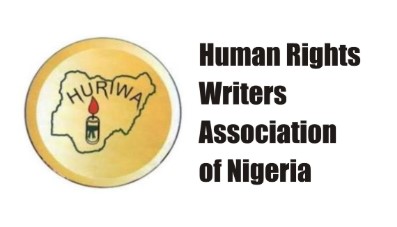

HURIWA slams EFCC as Tinubu’s attack dog, Says Tambuwal’s arrest is intimidation tactic against opposition


Tension rocks ADC coalition as EFCC targets key members over corruption probes
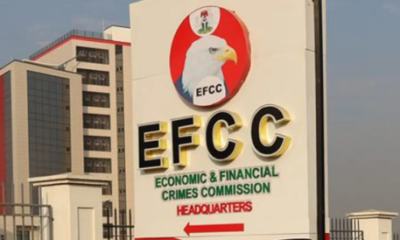

OOPL accuses alleged EFCC operatives of violent invasion, rights Violations


EFCC arraigns Man over alleged N208.3 Million theft in Lagos


APC Chieftain, Eze Chukwuemeka, Accuses Tinubu of “Electoral Fraud” Plot for 2027
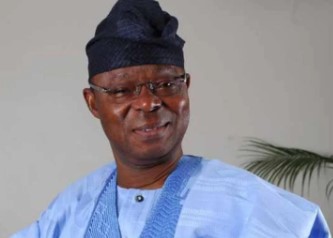

EFCC withdraws N12.3bn fraud case against honeywell chairman Oba Otudeko
Trending

 Latest1 week ago
Latest1 week agoPublic school building collapses in Ikorodu as students attend classes
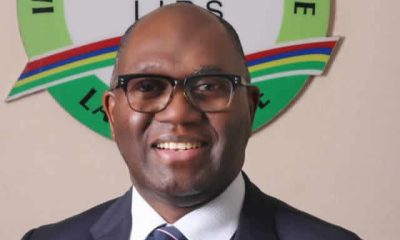
 Business1 week ago
Business1 week agoLIRS sets January 31, 2026 deadline for employers’ 2025 annual tax returns

 Latest1 week ago
Latest1 week agoLagos govt confirms no casualties at Lagos secondary school building collapse
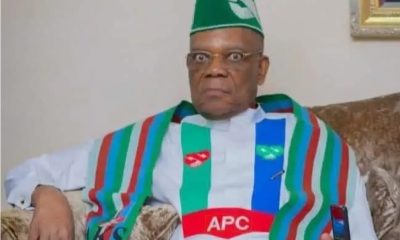
 Latest1 week ago
Latest1 week agoEtiebet hails Akpabio–Umo Eno alliance, describes APC synergy in Akwa Ibom as unprecedented

 Business1 week ago
Business1 week agoSEC unveils sweeping capital overhaul, raises minimum requirements across capital market

 Business1 week ago
Business1 week agoNGX ends 23-session rally as profit-taking wipes N457bn off investors’ portfolios

 Football1 week ago
Football1 week agoSlot hails Salah’s return as Liverpool prepares for Burnley clash

 Business1 week ago
Business1 week agoComrade Izeze, Foostodey boost youth entrepreneurship in Ughelli Sout

